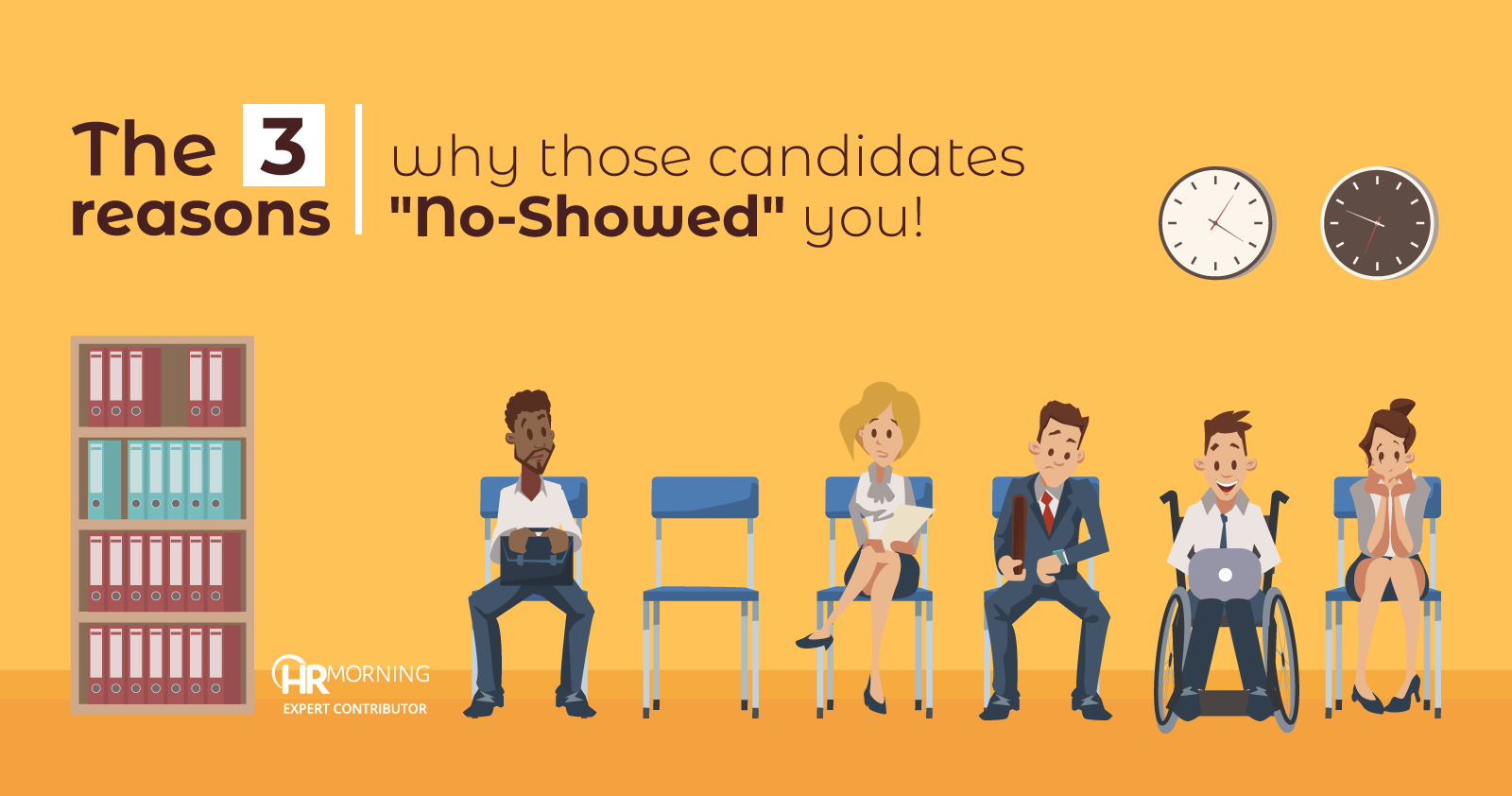The conference room is set. The team prepped. Resume printed. Hiring managers are in the wings.
You’re ready! Wait. They’re five minutes late. Now 20 minutes. Well, shoot. You’ve been stood up by a No-Show candidate.
Again.
No-Show prospects are not only frustrating — they’re holding your company back and keeping you from taking yet another to-do off your list.
Why does this keep happening?
We work across hundreds of employers and dozens of industries and we can share that “no shows” are normal, yet they seem to happen to certain employers more than others. Let’s review some of the common factors across firms that seem to encounter no shows more frequently and what you can do about it.
You took too long
Your sales team probably knows that a lead is tremendously more likely to buy from you if 1) you’re the first to contact, and 2) you respond to activity within 15 minutes. Recruiting is similar, in a way.
Often the “no show” occurs because the candidate got another job or thinks they’re about to and they simply do a poor job at tying up the loose ends of the job hunt. Had you moved a little faster, you could have been the company making the offer. The time it takes you to first reach out to express interest and then schedule them to come in is the time other employers have to seal the deal.
Yes, it can be overwhelming to review hundreds of resumes while handling all the other responsibilities on your plate but you’ll be well-served to reach out to candidates quickly after they apply. It’s your best bet at making sure other employers are not developing relationships before you do and it makes the candidate feel wanted – which is important and also related to reason number three.
You have some image issues
“Not cool, Jared!” may be the entirety of the response you currently have when you see someone has written a poor review online about their work experience. Maybe a “I’m surprised to hear that” when a candidate sheepishly admits they’ve heard “some things” at industry events?
We’ve found significant correlation between poor employer reputation and first face to face interview “no shows.” People do a much deeper dive between their first call with you and when they’re coming in for a formal, sit down interview.
It’s not surprising that having happy team members post honest, positive feedback on the same boards can be an effective counter to put some concerned candidates minds at ease. We’ve also found that addressing these types of reputational issues head on during the first phone interview can minimize downstream “no shows,” especially when paired with the plan your company has implemented to address legitimate concerns.
You failed to sell them
Often, the “no show” occurs between the initial outreach and the first in-person interview. These early interactions are critical to not only when you’re evaluating a candidate’s potential to be successful in the role but also on how you sell them on what a great company they could be joining.
Speed not only helps with combating competitive offers, it also is one of the strongest genuine tools to help a candidate feel appreciated, valued, and wanted. This helps sell them on your company being the right firm for them.
Jobs are aplenty. Candidates, for now, are the sought-after resource. Are your initial touches properly balancing evaluating the candidate with building excitement around your opportunity? Have growth plans, benefits, success stories, exciting company developments and the right welcoming personalities lined up on those first initial connections to ensure you’ve got an eager (and early) candidate sitting across from you in the conference room at your next initial face to face interview.
While you may never be able to eliminate the dreaded “no show” if you act decisively, proactively manage any known reputational issues and not lose sight that from the start you have to “sell” as much as the candidate does, you’ll find your frustration rate from disappearing candidates fall dramatically.


